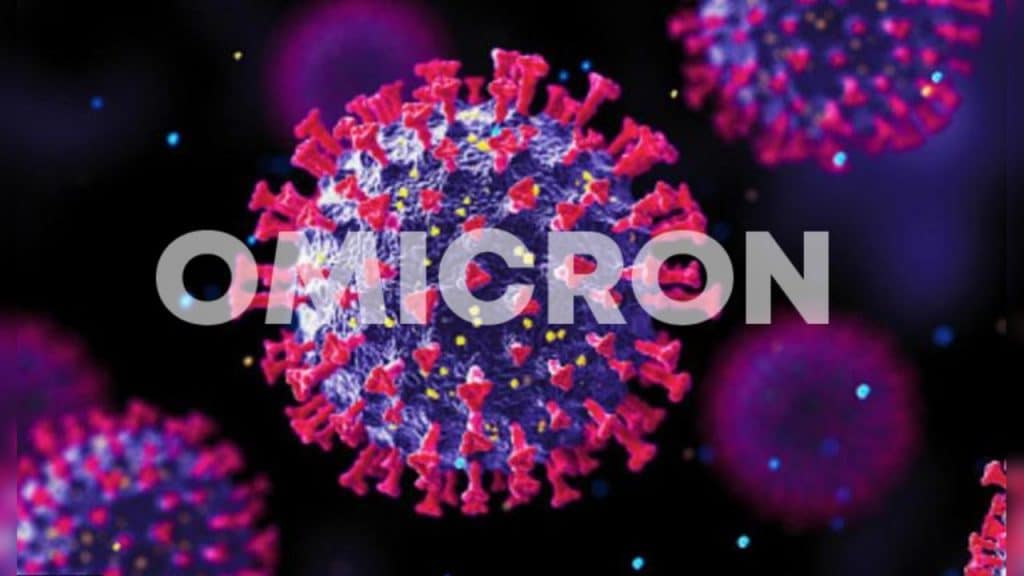The Netherlands is once again in 'hard lockdown.' After it was announced last week that primary schools had to close a week early, starting the Christmas holidays a week earlier, almost everything was closed last weekend. This hefty measure is to be taken to stop the spread of the Omikron variant of the coronavirus. Extra wry, because this outgoing government is thus proving that it wants to curb the spread of new variants, but is failing to prevent it.
Emergence of Omikron variant
According to the RIVM a new corona variant arises because the virus can change ever so slightly as it multiplies. Some of these, accidental, changes can cause a virus to behave differently, and spread more easily, for example, as now seems to be the case with the Omikron variant. It is important to realise that the likelihood of mutations thus increases with the rate at which the virus multiplies. This is why it is incredibly important that every person on this earth has access to vaccines. After all, vaccines inhibit the chance of infection, and thus also the chance of mutations.
Unfortunately, here in the West, short-term interests again seem to prevail over long-term ones. While we are in the middle of the booster campaign here and Dutch people are receiving their third vaccine, only 20 countries in Africa have more than 10 per cent of the population vaccinated. According to WHO at the current rate, 70 per cent of Africa's population will not be vaccinated until August 2024.
Causes vaccine disparity
This vaccine disparity has several causes. First, there is still absolutely no rush in vaccine donations by Western countries to Covax, the partnership to accelerate development, production and fair access to covid vaccines. Last week, it emerged that only a few hundred thousand vaccines had been distributed, out of the 22 million vaccines the Netherlands was supposed to supply to poor countries by the end of the year. According to Minister de Bruijn for Foreign Trade and Development Cooperation, 16 million vaccines have been delivered to Covax, after which they have yet to be distributed.
The Netherlands is not the only country that does not seem to be meeting the targets for Covax. Originally, the aim was to deliver 2 billion doses to the 92 poorest countries. When this proved unachievable, the target was lowered to 800 million, but even that appears to be probably too high. This creates a vicious circle: Mutations will continue to emerge, which will force Western countries to keep boosting and thus even fewer vaccines will go to the poorest countries.
In addition, vaccine manufacturers refuse to release their vaccine prescriptions. Releasing these prescriptions would allow vaccines to be produced more cheaply in countries such as South Africa and India, which would bring down the price and increase access to vaccines. Just over a year ago, South Africa and India made a proposal to the World Trade Organisation to lift these vaccine patents, so vaccine producers would have to release their prescriptions and techniques. Although this proposal was supported by more than 100 countries, European countries appeared to be opposed: they fear that this kind of decision-making sets a precedent for the future. This would make pharmaceutical companies less daring to invest in pharmaceutical innovation, for fear of suffering losses if they subsequently have to share their discoveries with the world. The wry thing about this, however, is that the initial studies on Covid vaccines were actually paid for with public investment. So it was largely taxpayers' money that brought these vaccines into being. Vaccines that now make billions in profit, without reaching the countries where they are most needed now.
Unfair no-fly zone
Finally, it is important to recognise that the African continent suffers unequal treatment if a new mutation is indeed found, as is now the Omikron variant. Omikron was discovered because South Africa has high-quality research facilities, where highly qualified researchers found the new mutation, and reported it immediately. The Netherlands immediately imposed a no-fly zone on South Africa, and expanded this a few days later to all countries in southern Africa. Perhaps at first glance, as a panic reaction, understandable: although WHO does not recommend this kind of rapid entry ban, there was an unknown virus variant we wanted to guard against. Unfortunately, a few days later it turned out that this variant had already spread to three continents, and it even turned out that Omikron was already was previously present in the Netherlands than it was discovered in South Africa. This indicates that it is not at all certain that this variant originated in southern Africa, it is only in South Africa discovered.
The RIVM now indicates that this Omikron variant is likely to be dominant in the Netherlands within weeks. It has thus failed to stop this variant. However, the no-fly zone is still in place, having a major negative economic impact on southern African countries. Moreover, all Europeans from southern Africa are welcome; the flight ban only applies to people without a European passport, so Europeans can still fly back and forth to their heart's content. This unequal treatment is the textbook example of our Africa strategy: we claim to want an equal relationship with Africa, but then our own interests prevail.
It is therefore incredibly important that the new administration realises that we live in a world where we are all connected, and where decisions here have an impact elsewhere. Corona is the greatest proof of this: We cannot contain the virus in just one part of the world's population; this can only be done through a collaborative approach. Therefore, ensure that a new Africa strategy is characterised by a focus on mutual interest, in which the African interest counts as much as ours. Only then will we have a chance of a world where Corona no longer dominates our news on a daily basis.





